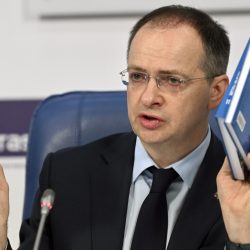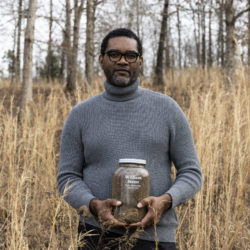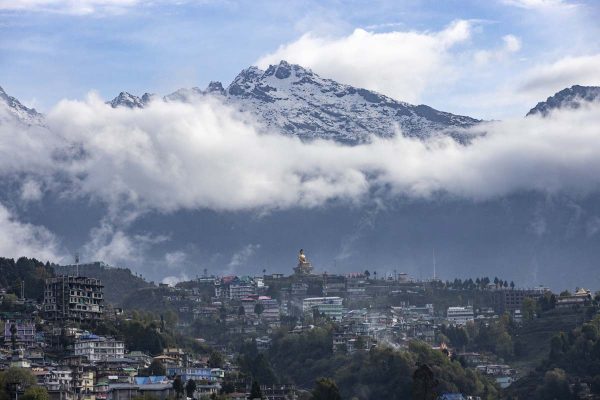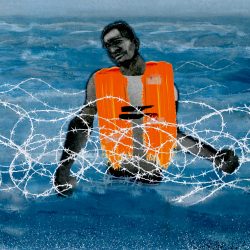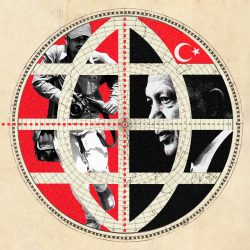
SERGEI GAPON/AFP via Getty Images
Surviving Russia’s control
In the final days of 2021, on the eve of the invasion of Ukraine, the Russian Supreme Court ordered Memorial, Russia’s oldest and largest human rights group, to be “liquidated.” On the day Memorial was awarded the 2022 Nobel Peace Prize, Russian authorities seized the organization’s Moscow offices.
Yet, nearly two years later, Memorial has not closed down. Its staff, led by mostly aging, bookish historians, have not just forestalled their demise but steered the organization to the razor’s edge of Russian political dissent.
It has no headquarters and no legal status in Russia. Its bank accounts are frozen and its programming has been pushed to the Moscow sidewalks. Yet, at a time when nearly all independent Russian media are operating in exile and Kremlin critics have been jailed, silenced or left the country, Memorial, in many ways, is roaring: publishing books, monitoring the ongoing trials of Ukrainian prisoners of war in Russia, offering free consulting to the relatives of people who disappeared during Soviet times on how to search archives for information, advocating for the growing list of political prisoners in Russia, and expanding its offices outside the country.
None of this is happening in the shadows. Memorial organizes regular “Topography of Terror” tours in Moscow, with one route going right up to the doorstep of Butyrka, one of Russia’s most notorious prisons during the Soviet era. The excursion ends with participants sitting down to write letters to the new generation of Russians imprisoned on politically motivated charges and awaiting trial inside the 250-year-old facility. Tickets sell out almost immediately.
“Our work could not stop for a single day,” historian and Memorial founding member Irina Scherbakova said.
Its annual “Returning the Names,” when people line up to read aloud the people killed by the Soviet regime, took place online on October 29 in cities across the world. Set up by the group in 2007, the event used to be held in front of the former KGB headquarters in Moscow, lasting twelve emotional hours but for the last few years, Moscow authorities have denied the group a permit.
While Memorial has worked under Kremlin intimidation for years, the war in Ukraine created an entirely new reality for an organization pursuing a mission to investigate Soviet-era crimes and expose present-day political abuses. In one of the most horrific recent cases highlighted by Memorial, Russian poet and activist Artyom Kamardin was raped with a dumbbell by law enforcement officers in September 2022 during a raid on his home after he posted a video online reciting an anti-war poem.
Memorial has withstood dismantling attempts thanks to a survival strategy put in place by its founders. Memorial is not a single organization, as its members like to remind the public, but a movement. Since its founding in 1987, the group has grown into a sprawling, decentralized network of organizations and individuals resilient against the Kremlin’s targeting.
There are more than 200 Memorial members and volunteers working globally, with just under a hundred left in Russia. With each local branch registered independently, it would take 25 separate court cases to entirely shut down the network inside the country. There are satellite offices in Belgium, the Czech Republic, France, Germany, Israel, Italy, Lithuania, Sweden, Switzerland and Ukraine. Earlier this year, two shuttered Russia-based Memorial organizations re-registered outside the country under new names in Switzerland and France.
“From the very beginning we knew we didn’t want a hierarchy,” explained Scherbakova. “We always knew that this was a grassroots story. If there had been a hierarchy, Russia would have destroyed us a long time ago.”
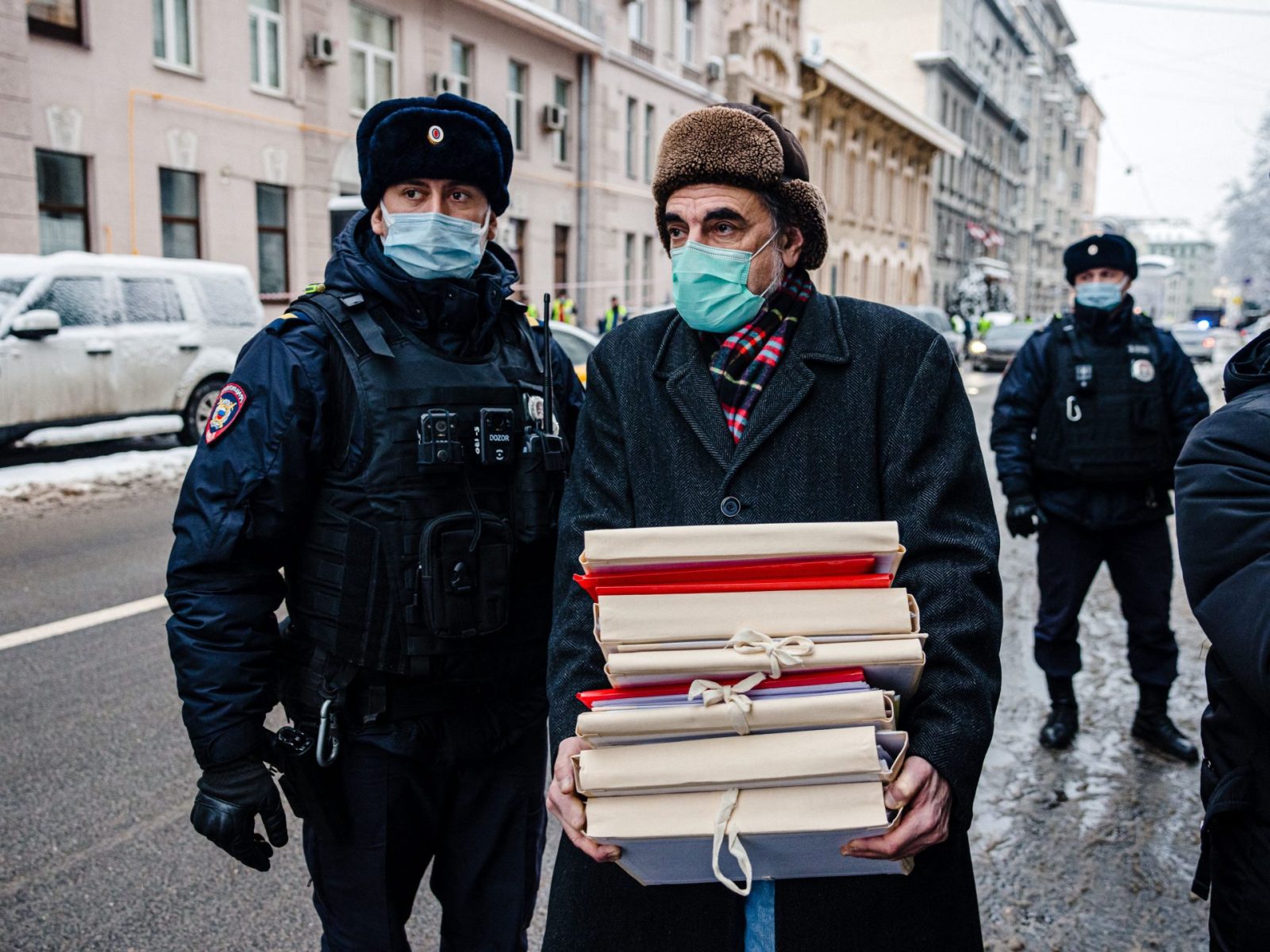
Memorial’s affiliate offices abroad have long been largely made up of local historians studying the Soviet period, but now many branches are absorbing staff that fled Russia.
The Prague office has become in the past 18 months a new headquarters of sorts. Today, the staff is a mix of Czechs and Russians. At the age of 70, the director of Memorial’s library, Boris Belenkin, fled Moscow for Prague last year. Belenkin calls the space a new “place for life” where Memorial workers can once again hold seminars, organize research fellowships and host visiting scholars.
From the Prague office, Memorial is also re-launching one of its most beloved programs: an essay-writing contest in which students in Russia were asked to delve into 20th century history. The contest had been run since 1999 in participating schools across 12 time zones before being called off in 2021. Finalists were flown out to Moscow to present their work at Memorial headquarters. For many students from far-flung regions, it was a once-in-a-lifetime opportunity to see their country’s capital. Over the years, schools dropped the program, caving to pressure from local officials and concerned, “patriotic-minded” parents.
Within Russia, pressure on staff continues to escalate. The director of Memorial’s branch in the Siberian city of Perm was arrested in May for “hooliganism” and has been in pre-trial detention ever since. Offices in Yekaterinburg and other cities face routine harassment and arbitrary fines from local authorities, pushing some to the verge of closing. A prominent Memorial historian, Yuri Dmitriev, is currently serving a 15-year sentence at a prison in what Memorial says is a politically motivated case. Both men are currently being held in facilities that were once part of the Soviet Gulag camp system.
In Moscow, nine Memorial members including Alexandra Polivanova, a programming director who leads the Butyrka prison tour, have become the targets of an ongoing criminal investigation. In May, authorities charged Memorial board member Oleg Orlov with “discrediting” the Russian military, a new crime in Russia that can carry a prison sentence of up to five years. In court in September, Orlov was asked to defend his denouncement of the war in Ukraine as well as his career documenting human rights abuses for Memorial in Chechnya and the wider Caucasus region, as well as in Nagorno-Karabakh and Ukraine. On October 11, the court found Orlov guilty and fined him. The government prosecutor requested that Orlov undergo a mental health evaluation, citing his “heightened sense of justice, lack of self-preservation instincts, and posturing before citizens.”
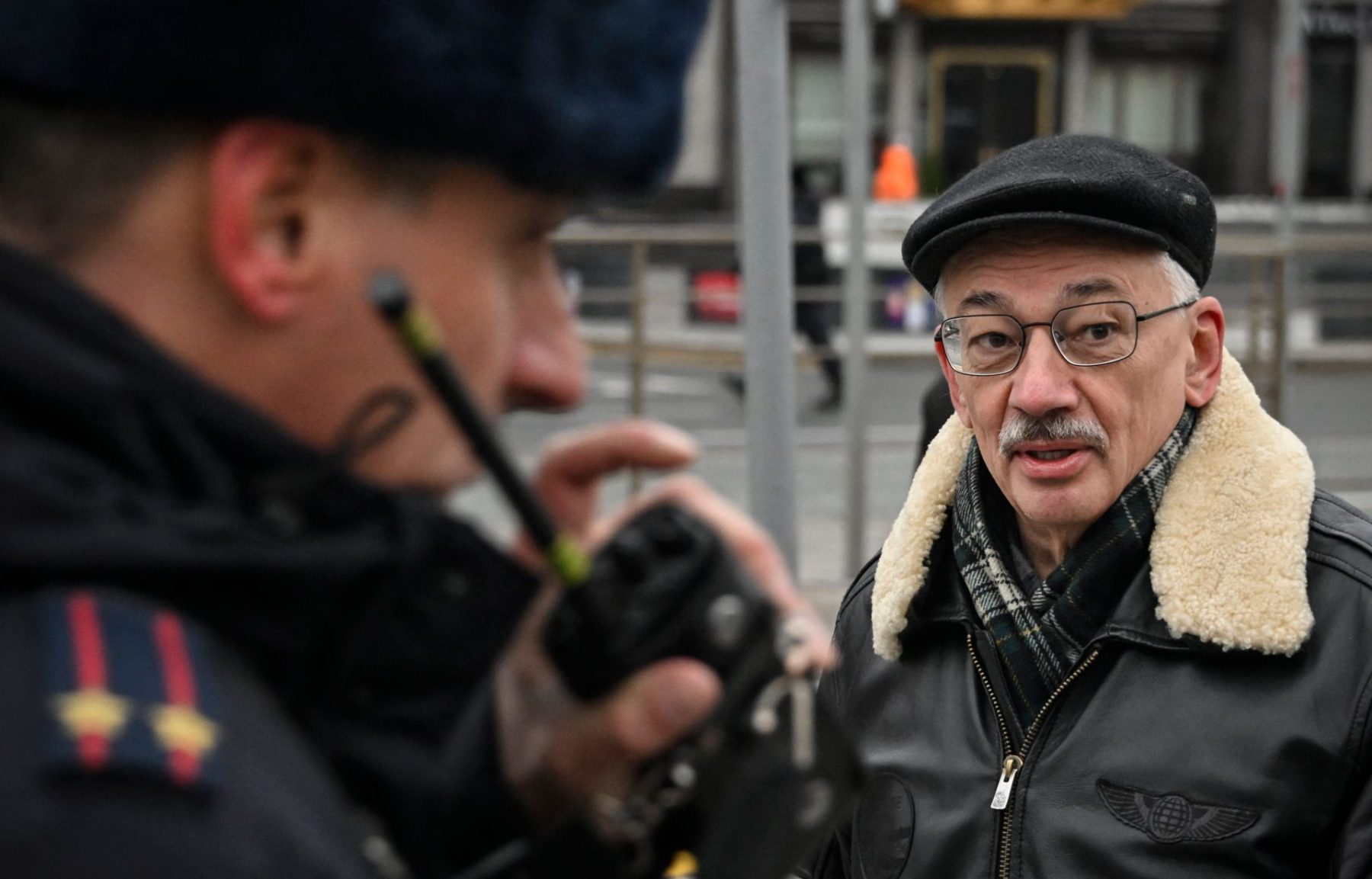
Memorial believes the criminal cases against Moscow staff are motivated by their ongoing advocacy for political prisoners in Russia. Memorial Center, which is the organization’s human rights branch, runs a database of people imprisoned under politically motivated charges and is often cited by international organizations. It also publishes regular updates on the prisoners and their cases, features interviews with their family members and organizes letter writing campaigns. Today, there are 609 people on Memorial’s list — a number that has tripled in the past five years.
Scherbakova, Memorial’s director and a historian of the Soviet Union, says this number is higher than during the late stages of the Soviet Union.
“In my opinion, today’s situation is much scarier and crueler,” said Scherbakova.
Memorial has been in the Kremlin’s crosshairs since it condemned Russia’s invasion and occupation of Crimea and other territories in eastern Ukraine in 2014. The government’s most powerful legal tool is the Foreign Agents Act, legislation designed to pressure groups and individuals who receive funding from outside the country. Passed in 2012 and expanded in 2020, the law imposes up to five years of imprisonment for failing to comply with an exhaustive system of tedious financial reporting and bureaucracy.
Russian authorities have also used the foreign agents law to target individuals. In mid-October, Russian police detained Alsu Kurmasheva, a Prague-based journalist at Radio Free Europe with dual Russian-American citizenship, for failing to register as a foreign agent when she traveled to Russia for a family emergency. If convicted, Kurmasheva faces up to five years in prison.
Authoritarian leaders around the world have since adopted similar legislation to quash dissent at home.
“Today, being a spy, a counter-revolutionary, a Trotskiest, all of that has been folded into the term ‘foreign agent,’” said Belenkin, the Memorial library director and a founding member of Memorial who was added to the Kremlin’s foreign agents list in 2022.
In 2021, the government brought Memorial before the Supreme Court, alleging that it had violated the law by failing to label a handful of social media posts with boilerplate text disclosing that Memorial is classed as a foreign agent. But by the closing argument, prosecutors dropped any pretense of holding Memorial accountable for a few unlabeled social media posts. Instead, the general prosecutor, Alexei Zhafyarov, took to the floor to dramatically rail against the group.
“Memorial speculates on the topic of political repression, distorts historical memory, including about World War II, and creates a false image of the Soviet Union as a terrorist state,” said Zhafyarov, mocking Memorial for “claiming to be the conscience of the nation.”
“Why, instead of being proud of our country, are we being told we must repent for our past?” Zhafyarov asked the courtroom.
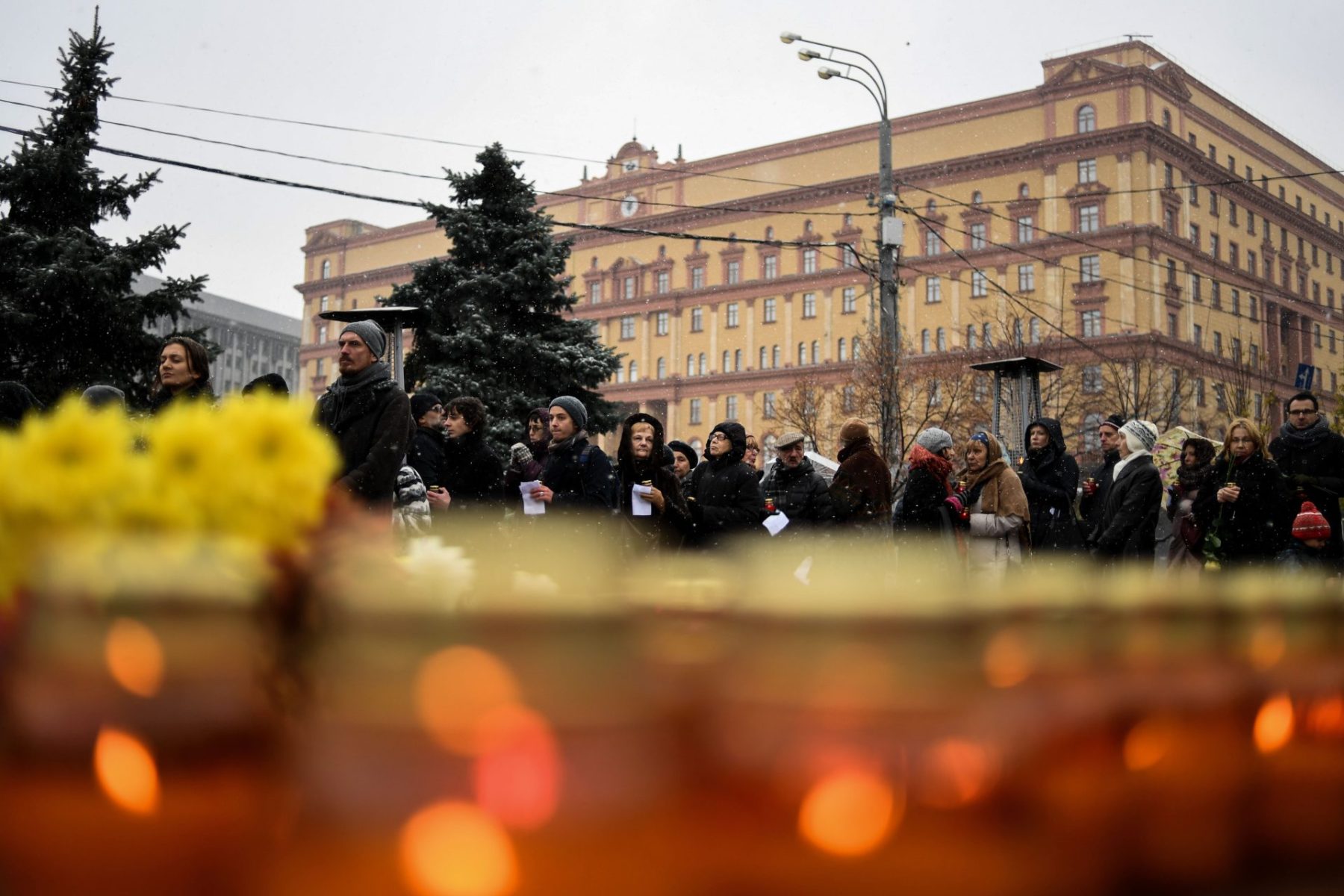
Russia’s Supreme Court is led by Chief Justice Vyacheslav Lebedev, who began his career sending anti-Soviet dissidents to Gulag camps in the 1980s and managed to stay in power following the collapse of the USSR — one of many Soviet officials who survived the transition to democracy.
Grigory Vaypan, part of Memorial’s defense team, said that ultimately this was an opportunity to expose the government’s real motivation for bringing the group to court and state for the historical record what Memorial’s closing was really about. “Zhafyarov rose, and instead of telling us about those posts on Twitter and Instagram, he said, ‘We should close Memorial because Memorial is pursuing a narrative that is not in the interest of the state,’” said Vaypan. “They needed to close Memorial because Memorial messed with the government’s narrative that ‘we, the Russian state, the state that won the Second World War, are unaccountable to the world.’”
“Re-reading the closing argument now makes much more sense to me than it did back then,” said Vaypan. “What the prosecutor said was a prologue to the war.”
Memorial lost an appeal in the Supreme Court in March 2022 as Russian troops marched to Kyiv. The war has left members asking themselves the same question that is echoing across Russian civil society: How did things go so wrong?
At Memorial, an initiative dedicated to preventing the return of totalitarianism to Russia, the invasion of Ukraine has led to a difficult, at times contentious, internal re-examination of its own legacy.
“We’re trying to understand what wasn’t right in our work over the past 35 years: How we didn’t build up cooperation with Russian society, how we failed to see different, more complex forms of discrimination and oppression,” Polivanova, the programming director, said. “We had blind spots in our work to the point where, in a sense, we all allowed this terrible war to happen.”
There was a mixed global reaction last year when the Nobel committee announced that the 2022 Nobel Peace Prize would be shared among Memorial, the Ukrainian Center for Civil Liberties and Ales Bialiatski, a human rights advocate from Belarus. The director of the Ukrainian organization Oleksandra Matviichuk praised Memorial’s work but refused to be interviewed alongside Yan Raczynski, who accepted the award for Memorial in Oslo. Ukraine’s ambassador to Germany called the shared recognition “truly devastating” in the context of the ongoing war, launched by Russia in part from Belarusian territory.
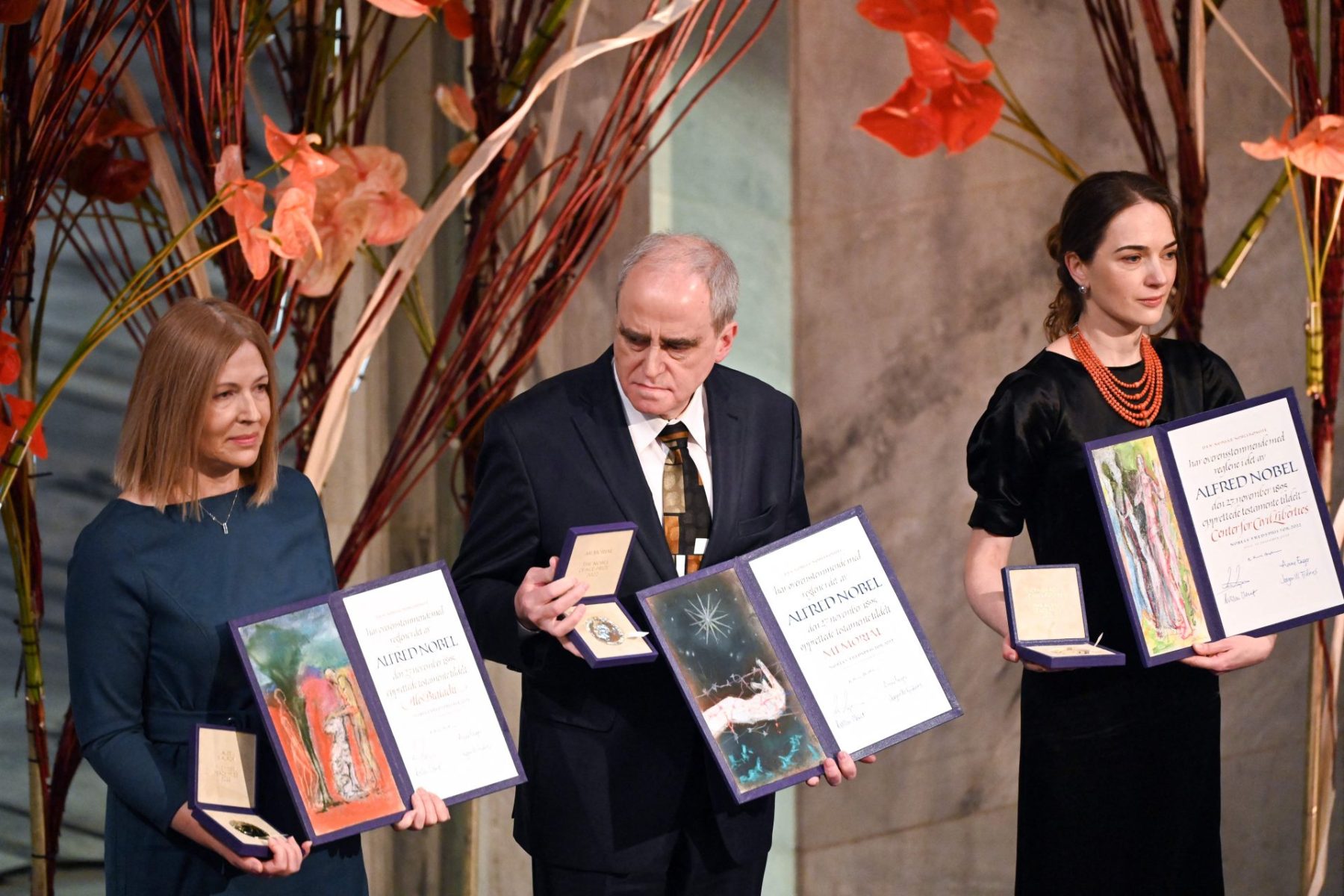
Not everyone at Memorial thinks the group should be judged through the lens of Russia’s war and hard turn towards authoritarianism.
“Without question, a medium-sized organization, with limited resources, and even with our network, could not change anything,” said Belenkin, director of Memorial’s library, in regards to the war. “Memorial is not relevant here.”
But Polivanova, who operates the tours and is a generation younger than much of Memorial’s leadership, believes that Memorial must re-examine its own legacy in connection to the war. The ongoing discussion among Memorial members on this topic has been “very difficult,” she said. She has reworked her tour lineup, with one of the new Moscow excursions dedicated to the Ukrainian human rights activist Petro Grigorenko.
Born in a small village in Ukraine’s Zaporizhzhya region in what was then the Russian empire, Grigorenko rose through the ranks of the Soviet Army to become a World War II hero and a major general. At the height of his career in 1968, Grigorenko broke with the Soviet Army by speaking out against the invasion of Czechoslovakia during the Prague Spring. Punishment came swiftly: He was arrested in Moscow, diagnosed as criminally insane and underwent punitive psychiatric treatment, a practice that has re-emerged under President Vladimir Putin. Somehow, Grigorenko managed to continue speaking out for the cause of long-persecuted Crimean Tatars, dared to criticize the Soviet narrative of the Second World War, and founded the Moscow and Ukrainian Helsinki Groups before being exiled.
“In the past, we didn’t consider this story to be so important,” Polivanova said. “This historical perspective was not stressed at Memorial.”
The updated tour lineup that includes Grigorenko’s life in Moscow has had a surge in popularity since the full-scale invasion of Ukraine. Over the past year and a half, Polivanova has had to triple the number of weekly walking tours and still isn’t able to keep up with demand. Registration fills up almost immediately after dates are announced.
The tours are one of the rare public forums available to Russians to discuss the war. “People are really engaging,” Polivanova said. In September 2022, she added readings of Ukrainian poetry written by authors killed during Stalin’s purges to a tour of a mass grave site in Russia’s northeast. On many excursions, participants start to take over, she said, drawing direct comparisons between the cruelty of Soviet repression and news of Russian atrocities in Bucha, Mariupol and other frontlines in Ukraine.
The tours have also attracted a different kind of participant. “Patriotic” activists crashed the organized outings for weeks at a time last fall, threatening those in attendance and publicly denouncing members of Memorial as “traitors.” Since then, Memorial started to require that participants provide links to their social media accounts when registering for a tour.
As people line up for Memorial’s tours, the government’s attempts to reverse many of Memorial’s decades-long efforts to seek accountability for crimes committed under communism remain relentless.
In September, the Russian Foreign Intelligence Service debuted in front of their offices a looming statue of Felix Dzerzhinsky, who founded the infamous Soviet political police apparatus. The statue was almost an exact copy of a Dzerzhinsky monument that stood for decades in front of the Moscow headquarters of the KGB, the Soviet Union’s secret police and intelligence agency. In 1991, Russians who had gathered to protest for an end to totalitarian Soviet rule and a transition to democracy tore it down. Today, the spymaster, ally of Lenin and Stalin, architect of the Red Terror, stands again in Moscow.
The story you just read is a small piece of a complex and an ever-changing storyline that Coda covers relentlessly and with singular focus. But we can’t do it without your help. Show your support for journalism that stays on the story by becoming a member today. Coda Story is a 501(c)3 U.S. non-profit. Your contribution to Coda Story is tax deductible.




